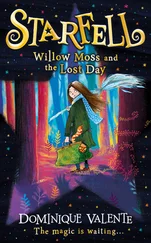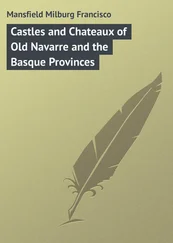Ursula Le Guin - Old Music and the Slave Women
Здесь есть возможность читать онлайн «Ursula Le Guin - Old Music and the Slave Women» весь текст электронной книги совершенно бесплатно (целиком полную версию без сокращений). В некоторых случаях можно слушать аудио, скачать через торрент в формате fb2 и присутствует краткое содержание. Жанр: Фантастика и фэнтези, на английском языке. Описание произведения, (предисловие) а так же отзывы посетителей доступны на портале библиотеки ЛибКат.
- Название:Old Music and the Slave Women
- Автор:
- Жанр:
- Год:неизвестен
- ISBN:нет данных
- Рейтинг книги:4 / 5. Голосов: 1
-
Избранное:Добавить в избранное
- Отзывы:
-
Ваша оценка:
- 80
- 1
- 2
- 3
- 4
- 5
Old Music and the Slave Women: краткое содержание, описание и аннотация
Предлагаем к чтению аннотацию, описание, краткое содержание или предисловие (зависит от того, что написал сам автор книги «Old Music and the Slave Women»). Если вы не нашли необходимую информацию о книге — напишите в комментариях, мы постараемся отыскать её.
and after that imported to fb2 by soshial (21.05.2008) http://torrents.ru/forum/viewtopic.php?t=463754
Old Music and the Slave Women — читать онлайн бесплатно полную книгу (весь текст) целиком
Ниже представлен текст книги, разбитый по страницам. Система сохранения места последней прочитанной страницы, позволяет с удобством читать онлайн бесплатно книгу «Old Music and the Slave Women», без необходимости каждый раз заново искать на чём Вы остановились. Поставьте закладку, и сможете в любой момент перейти на страницу, на которой закончили чтение.
Интервал:
Закладка:
"I would hope to be able to."
"Is it important to you that you be identified as a supporter of one side of the conflict, or would you prefer to remain neutral?"
"Any action can bring neutrality into question."
"To have been kidnapped from the Embassy by the rebels is no evidence of your sympathy for them."
"It would seem not."
"Rather the opposite."
"It would be so perceived."
"It can be. If you like."
"My preferences are of no weight, Minister."
"They're of very great weight, Mr. Old Music. But here. You've been ill, I'm tiring you. We'll continue our conversation tomorrow, eh? If you like."
"Of course, Minister," Esdan said, with a politeness edging on submissiveness, a tone that he knew suited men like this one, more accustomed to the attention of slaves than the company of equals. Never having equated incivility with pride, Esdan, like most of his people, was disposed to be polite in any circumstance that allowed it, and disliked circumstances that did not. Mere hypocrisy did not trouble him. He was perfectly capable of it himself. If Rayaye's men had tortured him and Rayaye pretended ignorance of the fact, Esdan had nothing to gain by insisting on it.
He was glad, indeed, not to be obliged to talk about it, and hoped not to think about it. His body thought about it for him, remembered it precisely, in every joint and muscle, now. The rest of his thinking about it he would do as long as he lived. He had learned things he had not known. He had thought he understood what it was to be helpless. Now he knew he had not understood.
When the scared woman came in, he asked her to send for the veterinarian. "I need a cast on my foot," he said.
"He does mend the hands, the bondsfolk, master," the woman whispered, shrinking. The assets here spoke an archaic-sounding dialect that was sometimes hard to follow.
"Can he come into the house?"
She shook her head.
"Is there anybody here who can look after it?"
"I will ask, master," she whispered.
An old bondswoman came in that night. She had a wrinkled, seared, stern face, and none of the crouching manner of the other. When she first saw him, she whispered, "Mighty Lord!" But she performed the reverence stiffly, and then examined his swollen foot, impersonal as any doctor. She said, "If you do let me bind that, master, it will heal."
"What's broken?"
"These toes. There. Maybe a little bone in here, too. Lotsalot bones in feet."
"Please bind it for me."
She did so, firmly, binding cloths round and round until the wrapping was quite thick and kept his foot immobile at one angle. She said, "You do walk, then you use a stick, sir. You put down only that heel to the ground."
He asked her name.
"Gana," she said. Saying her name, she shot a sharp glance right at him, full face, a daring thing for a slave to do. She probably wanted to get a good look at his alien eyes, having found the rest of him, though a strange color, pretty commonplace, bones in the feet and all.
"Thank you, Gana. I'm grateful for your skill and kindness."
She bobbed, but did not reverence, and left the room. She herself walked lame, but upright. "All the grandmothers are rebels," somebody had told him long ago, before the Uprising.
The next day he was able to get up and hobble to the broken-armed chair. He sat for a while looking out the window.
The room looked out from the second floor over the gardens of Yaramera, terraced slopes and flowerbeds, walks, lawns, and a series of ornamental lakes and pools that descended gradually to the river: a vast pattern of curves and planes, plants and paths, earth and still water, embraced by the broad living curve of the river. All the plots and walks and terraces formed a soft geometry centered very subtly on an enormous tree down at the riverside. It must have been a great tree when the garden was laid out four hundred years ago. It stood above and well back from the bank, but its branches reached far out over the water, and a village could have been built in its shade. The grass of the terraces had dried to soft gold. The river and the lakes and pools were all the misty blue of the summer sky. The flowerbeds and shrubberies were untended, overgrown, but not yet gone wild. The gardens of Yaramera were utterly beautiful in their desolation. Desolate, forlorn, forsaken, all such romantic words befitted them, yet they were also rational and noble, full of peace. They had been built by the labor slaves. Their dignity and peace were founded on cruelty, misery, pain. Esdan was Hainish, from a very old people, people who had built and destroyed Yaramera a thousand times. His mind contained the beauty and the terrible grief of the place, assured that the existence of one cannot justify the other, the destruction of one cannot destroy the other. He was aware of both, only aware.
And aware also, sitting in some comfort of body at last, that the lovely sorrowful terraces of Yaramera might contain within them the terraces of Darranda on Hain, roof below red roof, garden below green garden, dropping steep down to the shining harbor, the promenades and piers and sailboats. Out past the harbor the sea rises up, stands up as high as his house, as high as his eyes. Esi knows that books say the sea lies down. "The sea lies calm tonight," says the poem, but he knows better. The sea stands, a wall, the blue-grey wall at the end of the world. If you sail out on it, it will seem flat, but if you see it truly, it's as tall as the hills of Darranda, and if you sail truly on it, you will sail through that wall to the other side, beyond the end of the world.
The sky is the roof that wall holds up. At night the stars shine through the glass air roof. You can sail to them, too, to the worlds beyond the world.
"Esi," somebody calls from indoors, and he turns away from the sea and the sky, leaves the balcony, goes in to meet the guests, or for his music lesson, or to have lunch with the family. He's a nice little boy, Esi: obedient, cheerful, not talkative but quite sociable, interested in people. With very good manners, of course; after all, he's a Kelwen and the older generation wouldn't stand for anything less in a child of the family, but good manners come easy to him, perhaps because he's never seen any bad ones. Not a dreamy child. Alert, present, noticing. But thoughtful, and given to explaining things to himself, such as the wall of the sea and the roof of the air. Esi isn't as clear and close to Esdan as he used to be; he's a little boy a long time ago and very far away, left behind, left at home. Only rarely now does Esdan see through his eyes, or breathe the marvelous intricate smell of the house in Darranda—wood, the resinous oil used to polish the wood, sweetgrass matting, fresh flowers, kitchen herbs, the sea wind—or hear his mother's voice: "Esi? Come on in now, love. The cousins are here from Dorased!"
Esi runs in to meet the cousins, old Iliawad with crazy eyebrows and hair in his nostrils, who can do magic with bits of sticky tape, and Tuitui who's better at catch than Esi even though she's younger, while Esdan falls asleep in the broken chair by the window looking out on the terrible, beautiful gardens.
Further conversations with Bayaye were deferred. The zadyo came with his apologies. The Minister had been called back to speak with the President, would return within three or four days. Esdan realised he had heard a flyer take off early in the morning, not far away. It was a reprieve. He enjoyed fencing, but was still very tired, very shaken, and welcomed the rest. No one came into his room but the scared woman, Heo, and the zadyo who came once a day to ask if he had all he needed.
When he could he was permitted to leave his room, go outside if he wished. By using a stick and strapping his bound foot onto a stiff old sandal-sole Gana brought him, he could walk, and so get out into the gardens and sit in the sun, which was growing milder daily as the summer grew old. The two veots were his guards, or more exactly guardians. He saw the two young men who had tortured him; they kept at a distance, evidently under orders not to approach him. One of the veots was usually in view, but never crowded him.
Читать дальшеИнтервал:
Закладка:
Похожие книги на «Old Music and the Slave Women»
Представляем Вашему вниманию похожие книги на «Old Music and the Slave Women» списком для выбора. Мы отобрали схожую по названию и смыслу литературу в надежде предоставить читателям больше вариантов отыскать новые, интересные, ещё непрочитанные произведения.
Обсуждение, отзывы о книге «Old Music and the Slave Women» и просто собственные мнения читателей. Оставьте ваши комментарии, напишите, что Вы думаете о произведении, его смысле или главных героях. Укажите что конкретно понравилось, а что нет, и почему Вы так считаете.












